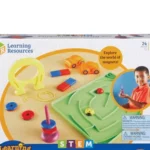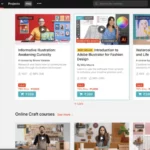Save Money on Textbooks and Study Guides
Finding affordable textbooks and study guides is vital for college students looking to save money. With the rising costs of education, it’s important to explore different options and make smart choices. This article will guide you through various strategies and resources to help you find the best deals on textbooks and study guides. From comparing prices online to utilizing student discounts, renting or buying used textbooks, exploring digital versions or e-books, considering book swapping, checking with the campus library, attending book fairs and sales, and exploring study guide alternatives, we’ve got you covered. By following these tips, you can save hundreds of dollars each semester and make your education more affordable. So, let’s dive in and discover the secrets to finding the most cost-effective resources for your academic journey.
Contents
- 1. Check Prices Online
- 2. Utilize Student Discounts
- 3. Rent or Buy Used Textbooks
- 4. Sell Your Old Textbooks
- 5. Look for Digital Versions or E-books
- 6. Consider Book Swapping
- 7. Check with the Campus Library
- 8. Attend Book Fairs and Sales
- 9. Consider Study Guides Alternatives
- 10. Conclusion
-
Frequently Asked Questions
- 1.3 Can I trust the information on Wikipedia?
- 2.3 How can I find student discounts on textbooks?
- 3.3 What are the pros and cons of renting textbooks?
- 4.3 Where can I sell my old textbooks?
- 5.3 Where can I find digital textbooks?
- 6.3 What platforms can I use for book swapping?
- 7.3 What are the policies and restrictions at the campus library?
- 8.3 How can I find book fairs and sales?
- 9.3 What are some other study guide options?
- 10.1 How can I save money on textbooks and study guides?
- References
1. Check Prices Online
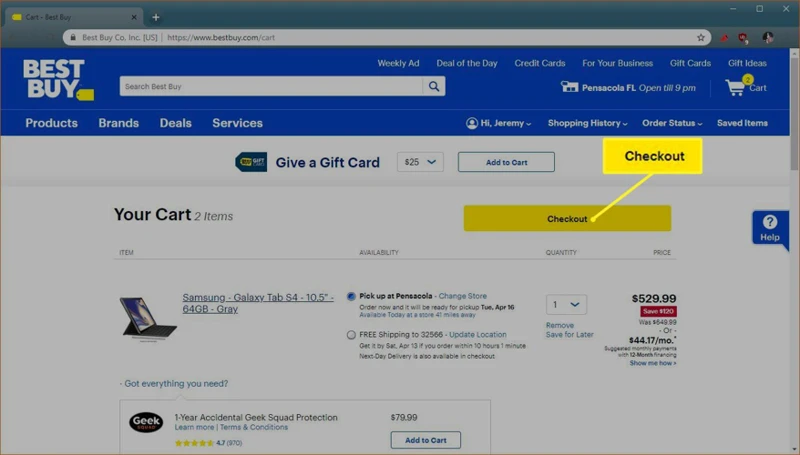
Finding affordable textbooks and study guides is essential for college students looking to save money. The first step in finding the best deals is to check prices online. There are several recommended websites for buying textbooks online, such as AllBookstores.com, BIGWORDS, and BookFinder.com. These sites compare prices from different sellers, allowing you to find the most competitive pricing. It’s important to shop around and compare prices on multiple sites to ensure you’re getting the best deal. Additionally, when purchasing physical textbooks, look for sites that offer free shipping to further save on costs. Keep in mind that older editions of textbooks may be cheaper, but they may not include the same information as the updated versions. Always check with your professor to see if using an older edition is acceptable. By utilizing price comparison websites and shopping around, you can find affordable textbooks and save money on your education.
1.1 Why You Should Compare Prices Online
When it comes to purchasing textbooks and study guides, comparing prices online can be a game-changer. It offers several advantages that can help you save money and find the best deals.
Saving Money: One of the main reasons to compare prices online is to save money. Online shopping allows you to quickly and easily search for the best prices offered by different vendors. By using price comparison sites like Book Scouter, Text Surf, SlugBooks, and The Book Rocket, you can search through thousands of listings from various online stores and find the cheapest option for the textbooks you need. These sites act as search engines, scouring the internet to provide you with the most competitive prices available.
Convenience and Time-Saving: Shopping online eliminates the need to visit multiple physical stores or browse through numerous websites individually. Price comparison sites do the heavy lifting for you by aggregating prices from different sellers, making it easy to compare and choose the most affordable option. Instead of spending hours searching for the best deals, you can use these tools to streamline your search process and find the best prices in a fraction of the time.
Wide Selection: Shopping online opens up a world of options. You’re not limited to the inventory of a single store or location. Price comparison sites search through a vast number of sellers, including both large retailers and smaller vendors. This means you have access to a wide selection of textbooks and study guides, increasing the likelihood of finding the specific editions you need at competitive prices.
Flexible Shopping Experience: Another advantage of comparing prices online is the ability to switch suppliers and vendors quickly. Online retailers can easily change their suppliers without disrupting your shopping experience. This flexibility ensures that you have access to a variety of options and can adapt to changing availability or pricing.
It’s important to note that while price comparison sites can greatly simplify your search for affordable textbooks, they may not include every single listing available online. There may be other offline options or student-to-student book exchanges that won’t show up in the search results. However, these tools provide a comprehensive starting point for your search and can save you significant time and effort.
By comparing prices online, you can take advantage of the competitive pricing offered by different sellers, save money on your textbooks and study guides, and make your academic journey more affordable. So, why spend hours searching through countless stores and websites when price comparison sites can do the work for you? Start comparing prices today and unlock the potential for significant savings on your educational resources.
For more information on finding the best deals and saving money on study materials, you can check out our article on the top websites for free and discounted study materials.
1.2 Recommended Websites for Buying Textbooks Online
When it comes to buying textbooks online, there are several recommended websites that can help you find the best deals. These websites offer a wide selection of new and used textbooks, often at discounted prices. Here are some of the top websites to consider:
1. AbeBooks: AbeBooks has been selling used cheap textbooks since 1996. They have a vast collection of books from independent merchants, offering savings of 50-90%. You can search for textbooks by ISBN, title, or author, and even find older versions that may be hard to find elsewhere. AbeBooks also offers free shipping and a one-month return policy, making it a great option for cheap textbooks.
2. Rakuten: Rakuten is another great website to find cheap college textbooks. They have a large selection of textbooks that you can filter by free delivery, price range, genre, subject, and publisher. With its simplicity and user-friendly interface, Rakuten is a convenient option for finding affordable textbooks.
3. Textbooks.com: Textbooks.com is a website where you can buy cheap textbooks and compare prices while viewing the book’s condition. They offer over ten million titles and free shipping on orders of $25 or more. With savings of up to 70% or more, Textbooks.com is a reliable source for finding affordable college textbooks. They also offer digital textbooks, which can save you even more money and provide instant access to your materials.
4. Knetbooks: Knetbooks is another website that allows you to buy, sell, or rent textbooks and ebooks. They offer up to 90% savings on ebooks and provide free shipping on all orders. With Knetbooks, you can easily find affordable textbooks and choose between buying or renting, depending on your needs.
By exploring these recommended websites, you can find the best deals on textbooks and save money on your educational expenses. Remember to compare prices, consider the condition of the books, and factor in shipping costs to ensure you’re getting the most cost-effective option for your needs.
For more tips on money management and saving on educational resources, check out our blog on top websites for free and discounted study materials.
2. Utilize Student Discounts

Save Money on Textbooks and Study Guides
Finding affordable textbooks and study guides is vital for college students looking to save money. With the rising costs of education, it’s important to explore different options and make smart choices. In this article, we will focus on Utilizing Student Discounts. Many companies offer discounts on tools, textbooks, and other educational materials to help students save money on their studies. By taking advantage of student discounts, you can get discounts on PDF annotators, readers, editors, and converters, as well as discounts on apps and software like Adobe and Microsoft products. Additionally, websites such as UNiDAYs and Student Beans offer student discounts on clothing, entertainment, technology, and more. Don’t forget to carry your student ID with you to verify your student status and take full advantage of these money-saving opportunities. By utilizing student discounts, you can keep your budget in check and start saving for your future.
2.1 How to Find Student Discounts on Textbooks
When it comes to buying textbooks, student discounts can be a great way to save money. Here are some tips on how to find these discounts:
1. Check with your college bookstore: Start by visiting your college bookstore and asking about any student discounts they offer. College stores often strive to provide discounts on textbooks for students. However, keep in mind that these discounts may vary and the availability of used textbooks may be limited.
2. Explore online platforms: Websites like Chegg and Amazon offer student discounts on textbooks. Chegg, in particular, is known for providing great deals on textbooks. Make sure to compare prices on different platforms to find the best discounts available.
3. Utilize student discount websites: There are websites like Student Beans and StudentRate that offer various student discounts, including discounts on textbooks. These websites require you to verify your student status, but once verified, you can access exclusive discounts on textbooks.
4. Sign up for student discount programs: Some companies have student discount programs that offer discounts on a wide range of products, including textbooks. For example, Lenovo offers a 5% discount on laptops and other computers for students. Verify your student status through programs like ID.me or VerifyPass to access these discounts.
5. Join student organizations: Some student organizations may have partnerships or discounts with textbook sellers. Check with organizations related to your field of study or academic department to see if they offer any discounts on textbooks.
Remember to always compare prices and consider the total cost, including shipping expenses, before making a purchase. Additionally, be cautious when buying educational materials online to ensure you receive the exact items you need for your studies.
By utilizing student discounts, you can save a significant amount of money on textbooks and make your educational expenses more manageable.
For more tips on finding affordable textbooks and study guides, check out our ultimate guide to finding cheap textbooks.
2.2 Recommended Websites for Student Discounts
When it comes to saving money as a student, taking advantage of student discounts is a must. Here are some recommended websites that offer great discounts for students:
1. Student Advantage: Student Advantage gathers coupons and affiliate deals across various product categories, including fashion, food, technology, and travel. By registering for a free account, students can access exclusive offers and discounts.
2. Student Beans: Student Beans is another platform that offers a wide range of student discounts. Students can find deals on fashion, food, technology, and more by signing up for a free account.
3. UniDays: UniDays is known for its extensive collection of student discounts. By registering with a valid student email address, students can access exclusive deals and offers from various brands and retailers.
4. Student App Centre: For students in need of apps and software, Student App Centre is a great resource. They offer discounts on various tools and software, including popular ones like 1Password, a highly-rated password manager.
These websites provide a convenient and easy way for students to save money on a variety of products and services. It’s important to keep in mind that the deals and discounts offered on these websites may change frequently, so it’s a good idea to bookmark them and check in regularly for the best deals nationally and in your local area.
By utilizing these recommended websites for student discounts, you can ensure that you never have to pay full price and can keep more cash in your pocket while enjoying your college experience.
3. Rent or Buy Used Textbooks
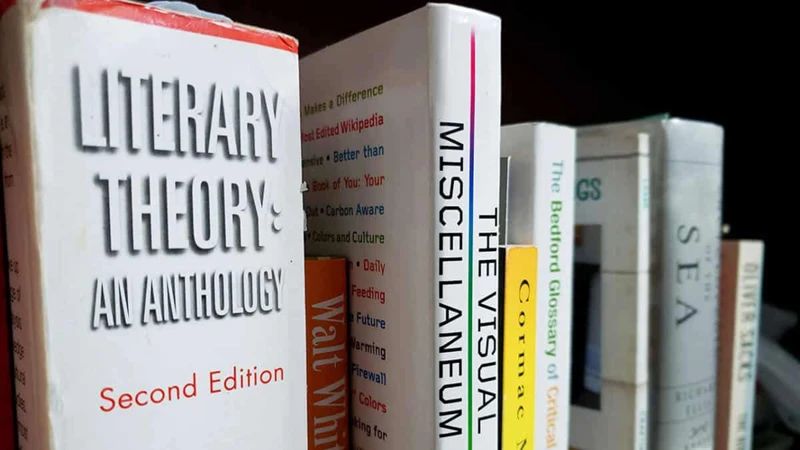
Finding affordable textbooks and study guides is crucial for college students looking to save money. In the section on renting or buying used textbooks, you have two options to consider. Renting textbooks can significantly slash your book costs, especially if you don’t need to keep them long-term. Renting is available both online and at brick-and-mortar stores. However, keep in mind that you won’t be able to mark the book if you prefer to highlight and underline. On the other hand, buying used textbooks can also save you money, with potential savings of up to 25% off the cost of a new textbook. College stores often have used textbooks, but they tend to sell out quickly. Be cautious when making educational purchases online, as the exact items you need may not be available right away. Additionally, don’t forget to calculate shipping expenses into the total cost of the textbook. It’s also important to note that if you have a choice between buying a textbook by itself or as part of a package with a study guide or software, make sure you need both parts, as packages are often non-returnable once opened. So, consider renting or buying used textbooks to save money and make your education more affordable.
3.1 Pros and Cons of Renting Textbooks
Renting textbooks has both advantages and disadvantages that students should consider before making a decision. Here are the pros and cons of renting textbooks:
Pros:
– Cost-effective: Renting textbooks is a much cheaper option compared to buying. You can save money by paying a small rental fee for a limited duration instead of purchasing the book at full price.
– Space efficient: Renting textbooks allows you to return the book once you’re done, saving you from the hassle of storing it for extended periods. This is especially beneficial for students with limited dorm room space.
– Convenience: Whether it’s a hardcover or an e-book, rented textbooks are readily available in most instances. You can easily find and rent the required book for the duration of your course.
Cons:
– Inability to keep the book: If you find a textbook extremely helpful and think it may benefit you in your career, renting may not be the best option. Renting restricts your ability to keep the book for future reference unless you purchase it separately, which could result in additional fees.
– Selling limitations: Renting eliminates the option of selling the textbook when you no longer need it. If you are not keen on selling, renting may be a better choice. However, selling textbooks may not always be lucrative, and you may not get back a significant portion of the original price.
– Storage challenges: If you can’t sell the rented textbooks, you will have to find space to store them. This can be a challenge, especially for college students who are already dealing with limited space in their living areas.
Considering these pros and cons, it is important to evaluate your learning style, book use habits, and long-term needs before deciding whether to rent or buy textbooks. Talking to professors and graduates in your program can also provide valuable insights on which books are essential for your academic journey.
3.2 Best Websites for Renting or Buying Used Textbooks
When it comes to renting or buying used textbooks, there are several websites that offer great deals and options for college students. Here are some of the best websites to consider:
1. ThriftBooks: With a vast inventory, ThriftBooks is a great option if you’re looking for rare editions or out-of-print titles. You can limit your search results by price, condition, or format, making it easier to find the perfect textbook for your needs.
2. Amazon: Amazon offers fast and easy textbook rentals. If you’re a Prime Student member, you can receive your textbooks in just two days, which is perfect if you’re in a time crunch. Plus, if you decide to purchase your textbook instead of renting, your rental fee will go towards the purchase.
3. CampusBooks.com: This website acts as a marketplace for new and used textbook rentals from various online vendors. You can compare prices using its “Buy vs. Rent” feature and enjoy free shipping for both renting and returning textbooks.
4. CheapestTextbooks.com: As the name suggests, CheapestTextbooks.com offers up to 95% off new and used textbooks, as well as 70% off rental books. You can also sell your books and ship them for free through this platform.
5. Chegg: Chegg is another popular option for renting or buying textbooks. With Chegg, you can save up to 90% on textbooks and ebooks. They also offer a 21-day risk-free return policy in case you drop or switch classes, and free shipping on orders over $35.
6. AbeBooks.com: AbeBooks.com is a great website for saving up to 90% on textbooks, many of which come with free shipping. They work with TextbookRush to offer a buyback option for cash.
7. Campus Book Rentals: Campus Book Rentals is a search engine that allows you to rent new or used textbooks. You can enter the book details and compare prices and availability. They also offer live customer support, extended rental periods, and the ability to highlight in the books.
8. ECampus.com: ECampus.com provides free shipping on textbook rentals over $35. They offer three rental terms: quarter, semester, or short-term, giving you more flexibility in choosing the rental period that suits your needs.
These websites are well-known for their competitive prices and wide selection of textbooks. Whether you’re looking to rent or buy used textbooks, these platforms can help you save money and find the books you need for your classes. Remember to compare prices and check for any additional discounts or promotions before making your final decision.
4. Sell Your Old Textbooks
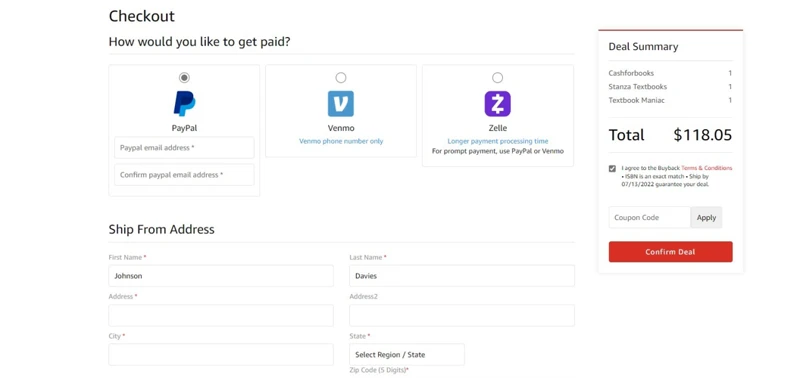
Finding affordable textbooks and study guides is essential for college students looking to save money. In the section “Sell Your Old Textbooks,” we will provide you with valuable tips for selling your textbooks and popular platforms where you can sell them. Selling your old textbooks can help you recoup some of the money you spent on them and make room for new ones. We will share tips on how to maximize your profit, such as keeping your textbooks in good condition and timing your sales for optimal demand. Additionally, we will recommend popular platforms where you can list your textbooks for sale, such as BookScouter and other trusted online marketplaces. By selling your old textbooks, you can not only save money but also contribute to the sustainability of the textbook market. So, let’s explore the strategies for selling your textbooks and make the most out of your academic resources.
4.1 Tips for Selling Your Textbooks
When it comes to selling your textbooks, there are a few tips that can help you get the most money for your books. Here are some strategies to consider:
1. Sell at the Right Time: Timing is important when it comes to selling textbooks. Try to sell your books at the end of the semester or right before the next semester starts, as there tends to be more demand during these times.
2. Keep Your Books in Good Condition: The better condition your books are in, the more money you can potentially get for them. Take care of your textbooks throughout the semester to ensure they are in sellable condition.
3. Research Different Selling Platforms: There are several popular platforms where you can sell your textbooks, such as AllBookstores, BIGWORDS, and BookFinder. Take the time to research these platforms and compare the fees, commission rates, and overall ease of use to find the best option for you.
4. Consider Selling Directly to Other Students: If you want to avoid fees and commissions, consider selling your textbooks directly to other students. You can advertise your books on campus bulletin boards, online student forums, or social media groups.
5. Bundle Items Together: If you have multiple textbooks or study guides from the same subject or course, consider bundling them together and selling them as a package. This can attract buyers who are looking for all the resources they need in one purchase.
6. Take Advantage of Buyback Programs: Some bookstores or online retailers offer buyback programs where you can sell your textbooks back to them for a certain price. While the buyback price might not be as high as selling directly to other students, it can be a convenient option.
7. Be Flexible with Pricing: To attract more buyers, consider being flexible with your pricing. You can offer discounts for bulk purchases or negotiate prices with potential buyers.
8. Advertise Your Books Well: When selling your textbooks, make sure to create compelling and accurate descriptions for your listings. Include relevant details such as the condition of the book, any highlighting or notes, and any accompanying materials.
9. Ship Your Books Safely: If you are selling your textbooks online and need to ship them to buyers, make sure to package them securely to avoid damage during transit. Use bubble wrap or padded envelopes to protect the books.
10. Keep Track of Your Sales: Lastly, it’s important to keep track of your sales and earnings. This will help you assess your selling strategies and determine which platforms or methods work best for you.
By following these tips, you can maximize your earnings when selling your textbooks and make the process smoother and more efficient. Good luck with your textbook selling journey!
(Source: BookScouter)
4.2 Popular Platforms for Selling Textbooks
When it comes to selling your old textbooks, there are several popular platforms that can help you get rid of them and make some money in the process. These platforms offer convenience and ease of use, making it simple for you to sell your textbooks online.
One popular platform is eCampus, which prides itself on being an easy and reliable platform for selling textbooks. They offer multiple payment options, including Paypal, check, direct deposit, or store credit. While there may be a commission fee for each sale, there are no listing fees or hidden fees associated with your sale.
Another option is TextbookRush, which offers free shipping and a quick payment system. Simply enter the ISBN of your textbooks and get an estimate of how much money you can make. TextbookRush also allows you to purchase or rent textbooks if you need them for other classes.
If you prefer to keep your sale local, you can use Craigslist. This online platform connects you with potential buyers in your area. However, it’s important to exercise caution when meeting with unfamiliar individuals. Make sure to meet in a public setting, bring a friend, and accept payment in cash.
Facebook Marketplace has also become a popular option for selling textbooks. With millions of people in your community, you have a larger reach. However, keep in mind that your post may get lost among the many other items being sold on the marketplace.
BookFinder is another popular platform for selling used college textbooks. It searches multiple websites to find the top deals and highest buyback offers. However, it may not be the best option for selling regular books.
Amazon, known for its vast selection of books, is also a great place to sell textbooks online. With over 50 million books listed for sale, it’s clear that books are in high demand on the site. Selling your textbooks on Amazon can provide you with a large potential customer base.
Lastly, Gotextbooks.com is a user-friendly platform for selling textbooks directly. While it may not provide contact information on the site, many people find it to be a reliable option.
These popular platforms offer different features and benefits, so it’s important to consider which one aligns best with your needs. Whether you prioritize convenience, reach, or maximizing profit, there is a platform that can help you sell your textbooks successfully.
5. Look for Digital Versions or E-books

Finding affordable textbooks and study guides is crucial for college students who want to save money. In the digital age, one great option to consider is looking for digital versions or e-books of your required textbooks. By purchasing or renting digital textbooks, you can save money on printing and shipping costs, making them much more affordable than their printed counterparts. Additionally, digital textbooks offer interactive elements and the ability to search for keywords, making studying and navigating the content easier. You can find digital textbooks from various sources, such as online marketplaces or through inclusive access programs offered by your college or university. By opting for digital versions or e-books, you can not only save money but also lighten your backpack by eliminating the need to carry physical books. So, explore the world of digital textbooks and take advantage of the benefits they offer. (Keywords: affordable textbooks, digital versions, e-books, save money, interactive elements, search for keywords)
5.1 Advantages of Digital Textbooks
Digital textbooks offer numerous advantages over traditional printed textbooks. These advantages include:
1. Accessibility: Digital textbooks can be accessed on multiple devices, such as laptops, tablets, and smartphones. This allows students to study and learn anywhere at any time, making it convenient for those who need to study or work in different locations.
2. Eco-friendly: Digital textbooks eliminate the need for physical copies, reducing paper waste and contributing to a more sustainable environment. By using digital textbooks, students can play their part in conserving resources and reducing their carbon footprint.
3. Cost savings: Digital textbooks are more cost-effective compared to traditional textbooks. They eliminate the need for students to purchase expensive physical copies, which can save them a significant amount of money. This is particularly beneficial for students from low-income families who may struggle to afford expensive textbooks.
4. Customizable options: Digital textbooks offer customizable text and display options. Students can adjust the text size, font, and background color, making reading more comfortable for those with visual impairments. Additionally, text-to-speech features help students with reading difficulties, such as dyslexia, to cope more effectively.
5. Support for students with disabilities: Digital textbooks provide accessibility features that traditional textbooks cannot offer. For example, students with hearing disabilities can benefit from video captioning technology, while those with dyslexia can use text synchronization with an audio read-aloud feature. These features enable students with disabilities to fully participate in their learning experience and achieve academic success.
Digital textbooks offer a more engaging and interactive learning experience. With the ability to incorporate multimedia elements, personalized learning paths, and instant access to additional resources, students have the opportunity to enhance their understanding and acquire knowledge more effectively. As technology continues to evolve, the use of digital textbooks is likely to become more widespread, revolutionizing the way students learn and access educational materials.
For more information on affordable study tools and student discounts, you can visit this link.
5.2 Where to Find Digital Textbooks
When it comes to finding digital textbooks, there are several options available to students. One of the easiest ways to access digital textbooks is by purchasing them directly from the publisher. Many textbook publishers now offer digital versions of their books that can be accessed through a computer or tablet. These digital copies are typically much cheaper than physical textbooks because the publisher doesn’t have to cover the costs of printing.
Another option is to check with your school’s library. Some libraries have digital copies of textbooks that students can borrow. While this may not be a long-term solution, it can be a good option if you only need the textbook for a specific lesson or assignment.
Additionally, there are online platforms and websites that offer free or discounted digital textbooks. The Open Textbook Library, for example, offers over 1,100 textbooks that are openly licensed and free to use and distribute. This can be a great resource for students looking to save money on textbooks.
Lastly, some scholarships and financial aid programs allow students to use the funds for textbooks and supplies. It’s worth researching if there are any scholarships available that can help cover the costs of digital textbooks.
By exploring these options, students can find affordable or even free digital textbooks, saving them money and making their education more accessible.
6. Consider Book Swapping
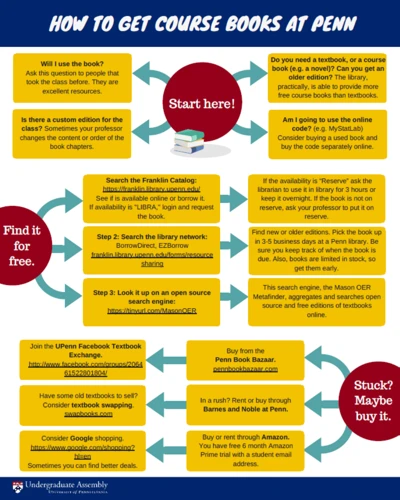
Consider Book Swapping
Book swapping is a great option for college students looking to save money on textbooks. With book swapping, you can exchange your old textbooks with other students who need them, allowing both parties to save money. The process is simple: you create a profile and list the books you’re willing to trade. Then, you can search for the textbooks you need and connect with other students to arrange the swap. Platforms like BookMooch and BookCrossing are popular for book swapping. This not only helps you save money but also allows you to build a community of fellow students who share similar interests. So, if you’re willing to take a risk and invest the price of a book, book swapping can be a cost-effective solution for obtaining the textbooks you need.
6.1 How Book Swapping Works
Book swapping is an alternative method for acquiring books without spending a lot of money. It operates on the principle of exchanging books with others who are interested in participating in the swap. Here’s how it works:
1. Find a Book Swapping Platform: There are several platforms available that facilitate book swapping. These platforms connect individuals who are looking to exchange books. Some popular platforms include BookMooch, PaperbackSwap, and Swap.com.
2. Create an Account: Once you have chosen a platform, create an account by providing the required details. This will enable you to participate in the book swapping community.
3. List the Books You Want to Swap: After creating an account, you can start listing the books you are willing to swap. Provide details about the book, such as the title, author, and condition. This will help other users decide if they are interested in swapping with you.
4. Browse Available Books: Explore the platform to see the books available for swapping. You can search for specific titles or browse through different genres. When you find a book you are interested in, you can request to swap it with one of your listed books.
5. Initiate a Swap: If another user is interested in one of your listed books, they can initiate a swap request. You will receive a notification and can decide whether to accept or decline the request. If you accept, you will need to arrange the logistics of shipping the book to the other person.
6. Receive Books: Once you have accepted a swap request and shipped your book, you can anticipate receiving a book in return. The timing may vary depending on the location of the other user and shipping arrangements. It’s important to communicate and coordinate with the other user to ensure a successful swap.
7. Enjoy Your New Book: Once you receive the book, you can enjoy reading it at your leisure. Book swapping allows you to discover new titles and authors without the financial burden of purchasing new books.
It’s important to note that book swapping relies on trust and the goodwill of participants. Make sure to accurately describe the condition of your books and follow through on your commitments to maintain a positive experience for everyone involved.
Consider Book Swapping as a cost-effective way to expand your book collection and engage with a community of fellow readers. It may not guarantee receiving a specific number of books, but it offers the opportunity to discover new titles and contribute to a sustainable reading culture.
6.2 Platforms for Book Swapping
If you’re interested in book swapping as a way to save money on textbooks and expand your reading collection, there are several platforms available to facilitate the exchange. These platforms provide a community of users who are willing to trade books with each other. By joining these platforms, you can post the titles of books you’re willing to trade and search for the specific textbooks or reading materials you need.
One popular platform for book swapping is BookMooch. This website has a library of hundreds of thousands of books, including academic books. You can create a profile, list the books you’re willing to trade, and browse through the available titles to find the ones you need. Another platform to consider is BookCrossing, where you can release your books “into the wild” and track their journey as they are passed on to new readers.
In addition to dedicated book swapping platforms, you can also utilize Waterstone’s reward schemes. While Waterstones may not be the cheapest option for purchasing books, their loyalty program, called Waterstones Plus Card, offers some benefits for frequent shoppers. With this card, you earn one ‘Plus stamp’ for every £10 you spend, and for every 10 stamps, you receive £10 off your purchase. This can be a nice bonus if you frequently shop at Waterstones.
Remember, book swapping may not guarantee that you’ll receive the exact 36 books advertised in some instances, but it can still be a valuable way to receive new reading materials and save money. Consider exploring these platforms and reward schemes to enhance your book collection and make your academic journey more affordable.
For even more freebie reading, you can check out websites like Open Library, Project Gutenberg, and Google Books. These platforms provide access to a wide range of books that you can read on your tablet or laptop, making them great options for skimming texts or exploring additional reading materials.
If you sign up for Amazon Prime, especially as a student, you can enjoy six months of free access to Prime Reading. This service offers thousands of books to choose from, allowing you to access a vast library at no additional cost.
Also, don’t forget to take advantage of the free access to massive online libraries of academic journals provided by your university. These resources can be invaluable for your studies and research.
Book swapping through dedicated platforms or utilizing reward schemes like Waterstone’s Plus Card can be effective strategies for obtaining textbooks and expanding your reading collection. Additionally, exploring online platforms and taking advantage of free resources such as digital libraries and academic journals can further enhance your access to affordable and valuable reading materials.
7. Check with the Campus Library

Finding affordable textbooks and study guides is crucial for college students who want to save money. In this section, we will explore the option of checking with the campus library. The university library is often an underutilized resource that students have access to. The library may have the assigned textbooks available for loan, and they may even purchase additional sets if necessary. However, there are a few obstacles to consider. Firstly, the book must be available at the local library, and some libraries may not allow patrons to check out textbooks. If you are able to borrow the book, you may need to study at the library every time you need it, and you may not be allowed to keep it for the entire semester. Despite these challenges, the library can be a valuable resource for textbooks and study guides. You can also check the university’s online library for access to thousands of valuable texts, including eBook versions of textbooks. So, don’t forget to utilize the library’s resources and save some money on your course materials.
7.1 Library Resources for Textbooks and Study Guides
When it comes to finding free resources for your textbooks and study guides, don’t overlook the potential of your local library. While traditional textbooks may not be available at your regular public library, there may be options at a local college library. Although you may not be able to take the books with you, you may be able to use them for a few hours each day to study. This can be a great option if you live near a college campus or have access to a library that offers textbooks for limited use.
To find library resources for textbooks and study guides, start by checking with your local college library. They may have a collection of textbooks and study guides that you can use. Keep in mind that you may need to study at the library every time you need the book, as many libraries do not permit patrons to check out textbooks.
In addition to college libraries, there are also virtual libraries that offer reference materials and literature for free. Websites such as the Internet Public Library and Bartleby offer links to hundreds of full-text books, magazines, and newspapers. Project Gutenberg is another great resource, providing 16,000 e-books for free download, including classics like Pride and Prejudice and The Odyssey.
Google Scholar is offering an ever-increasing database of free academic articles and e-books. This can be a valuable resource for finding supplementary materials for your studies.
While utilizing library resources may come with limitations, such as limited access or the need to study on-site, it can still be a valuable option for finding free textbooks and study guides. So, don’t forget to check with your local library or explore virtual libraries for additional resources to support your studies.
For more tips on saving money on textbooks and study guides, consider checking out our article on saving money on online courses and student discount codes.
7.2 Policies and Restrictions
When it comes to accessing textbooks and study guides through the campus library, there are certain policies and restrictions that you need to be aware of. These guidelines are in place to ensure fair and equal access to resources for all students. Here are some important points to keep in mind:
1. Borrowing Period: The campus library typically allows students to borrow textbooks and study guides for a limited period of time. This could range from a few days to a few weeks, depending on the demand for the resource. It’s important to return the materials on time to avoid any late fees or penalties.
2. Reservation System: In some cases, popular textbooks or study guides may have a high demand among students. To manage this, the library may have a reservation system in place. This means that you can reserve a particular resource in advance and be notified when it becomes available for borrowing.
3. Usage Restrictions: While using the textbooks and study guides within the library premises, there may be certain restrictions on photocopying or scanning the materials. This is done to protect the copyright of the authors and publishers. Make sure to abide by these restrictions to avoid any legal issues.
4. Limited Availability: It’s important to note that the campus library may not have all the textbooks and study guides required for your courses. They usually have a limited collection based on the curriculum and student demand. In such cases, you may need to explore other options like purchasing or renting the materials.
5. Return Conditions: When returning borrowed textbooks and study guides, the library may have specific conditions regarding their condition. It’s important to handle the resources with care and return them in the same condition as you received them. This includes avoiding any damage, highlighting, or writing on the materials.
6. Access for Non-Students: In some cases, the campus library may allow non-students, such as faculty or staff members, to borrow textbooks and study guides. However, there may be certain restrictions or priority given to students. Make sure to check the library’s policy regarding access for non-students.
By understanding and adhering to these policies and restrictions, you can make the most of the resources available at the campus library. Remember to respect the guidelines in place to ensure fairness and equal access for all students.
For more information on affordable study tools and resources, you can explore our article on Affordable Study Tools for High School Students.
8. Attend Book Fairs and Sales
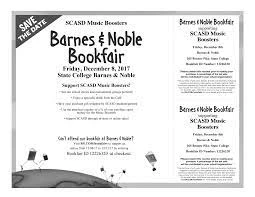
Attending book fairs and sales is another valuable strategy for finding affordable textbooks and study guides. These events provide a great opportunity to connect with publishers, agents, and other industry professionals who may be interested in acquiring new content or buying and selling rights. By obtaining a copy of the fair catalogue in advance, you can identify publishers whose interests align with your subject matter and style. Make a list of the stands you want to visit and the people you want to meet, and consider scheduling appointments to ensure you have dedicated time with potential buyers. Even if you don’t have appointments, book fairs still offer the chance to network and build connections within the publishing community. Leave your book catalogue and contact information at stands that interest you, both physically and online, in case buyers are too busy for unscheduled meetings. Attending book fairs and sales can be a valuable way to expand your publishing network and potentially secure deals for your textbooks and study guides.
8.1 Benefits of Book Fairs and Sales
Book fairs and sales offer numerous benefits for both authors and readers. They provide a unique opportunity to connect with your audience and receive valuable feedback. Attending book fairs allows authors to meet their readers and gain insights into their preferences and interests. This feedback can be invaluable for improving future work and understanding what resonates with readers.
In addition to connecting with readers, book fairs also provide a chance to network with other authors, illustrators, and industry professionals. Meeting and collaborating with fellow writers and artists can open up new opportunities for growth and creativity. It allows for the exchange of ideas, feedback, and recommendations, fostering a sense of community within the literary world.
Book fairs offer a platform to showcase and sell your books. While it’s important to note that joining a book fair does not guarantee immediate success in landing a publishing deal or securing a literary agent, it does provide exposure to the publishing industry and potential readers. Book fairs can help boost your presentation and sales skills, teaching you how to effectively market your book, develop your platform, and manage distribution channels.
Attending book fairs also offers a chance to stay updated on the latest trends and technologies in the publishing industry. From seminars and workshops to presentations and panel discussions, you can learn from leaders in your literary niche and witness demonstrations of new products and services. This knowledge can be valuable for adapting to the changing landscape of the publishing industry and staying ahead of the curve.
Book fairs allow you to gather market intelligence. By observing what booksellers stock and what appeals to readers, you can gain insights into current trends and preferences. This information can inform your future work and help you create content that resonates with your target audience.
Lastly, book fairs provide a platform for selling your books directly to readers. It’s an opportunity to showcase your work, engage with potential buyers, and generate sales. The direct interaction with readers can create a personal connection and enhance your brand as an author.
Attending book fairs and sales can provide valuable networking opportunities, market research insights, and sales potential for authors. It’s a chance to connect with your audience, learn from industry leaders, and gain exposure in the publishing world. Take advantage of these events to enhance your skills, expand your network, and succeed in the ever-changing publishing industry.
For tips on finding book fairs and sales, check out our article on exploring educational software discounts.
8.2 How to Find Book Fairs and Sales
When it comes to finding book fairs and sales, it’s important to plan ahead and do your research. Here are some steps you can take to locate these events and make the most of them:
1. Obtain a Book Fair Catalogue: Before the fair, try to get your hands on a copy of the fair catalogue. This will give you valuable information about the publishers and their subject interests. Take the time to study their range and style of publications to find the best matches for your own work.
2. Identify Key Players: Larger book fairs often highlight the key players attending the event. Take note of these publishers, agents, and other rights buyers who could be potential buyers for your book. This information will assist you in your search and help you make arrangements in advance.
3. Make a List: Based on your research, create a list of the stands you want to visit and the people you want to meet. This will help you stay organized and focused during the fair.
4. Schedule Appointments: Book fair attendees are often very busy, with appointments every half hour. If you want to meet with specific agents, publishers, or rights buyers, it’s best to arrange appointments in advance. Reach out to them before the fair to schedule a meeting time.
5. Drop by Unscheduled: Even if you don’t have appointments, you can still make the most of book fairs. Take the time to visit stands and do unscheduled meet-and-greets. This is an excellent opportunity to network, exchange contact information, and build relationships within the publishing community.
6. Leave Information: If you don’t have the chance to meet with a potential buyer, leave your book catalogue on their stand. Include a business card and details of where to find you, both at the fair and online. This way, they can still learn about your work and contact you if they’re interested.
7. Attend Seminars and Workshops: Book fairs are not just about buying and selling rights. They also offer valuable learning opportunities. Attend seminars, workshops, presentations, and panel discussions to gather market intelligence, explore new trends, and learn from leaders in your literary niche.
8. Network, Network, Network: Book fairs provide incredible networking opportunities. Take the time to meet fellow writers, authors, and artists. Build connections and relationships that can provide feedback, insights, recommendations, and strategies for your publishing journey.
Remember, book fairs are not only about making sales. They are also about building connections, learning, and exploring the publishing industry. By following these steps and making the most of these events, you can increase your chances of finding potential buyers for your book and expanding your network within the publishing community.
9. Consider Study Guides Alternatives
Finding affordable study guides is an important aspect of saving money on college expenses. In this section, we will explore alternative options to traditional study guides. One option is to utilize free online resources for study guides. These resources, such as CliffsNotes, SparkNotes, and Shmoop, offer guides for various subjects and can be accessed online or on mobile phones. Another option to consider is exploring other study guide options, such as interactive media platforms or online courses. These alternatives can provide additional resources and opportunities for learning. By considering these study guide alternatives, students can access valuable study materials without breaking the bank.
9.1 Free Online Resources for Study Guides
When it comes to finding study guides, there are now numerous free online resources available that can be incredibly helpful for students. These resources can provide valuable supplementary materials and insights to enhance your understanding of various subjects. Here are some reputable websites where you can find free study guides:
1. CliffsNotes: Known for their annotated guides to famous literary works, CliffsNotes also offers study guides for math, science, foreign languages, and more. Each guide comes with a brief quiz and links to related works and subjects.
2. SparkNotes: SparkNotes is a student-oriented website that offers study guides, particularly for literature and other subjects. In addition to text-based study guides, SparkNotes also features interactive media, such as fan art and user-generated content.
3. Shmoop: Shmoop is another popular online resource for study guides. They provide guides for a wide range of subjects, including literature, history, science, and more. Shmoop also offers interactive features, such as customizable flashcards and interactive games.
4. GradeGuru: GradeGuru is an online collaborative study site developed by McGraw-Hill. While it primarily focuses on providing study materials created by students, it also offers study guides for various subjects. It has seen a significant increase in popularity over the past year.
These websites not only offer study guides but also provide additional content such as quizzes, interactive games, and user-generated posts. They can be a valuable tool for students looking to supplement their learning and deepen their understanding of different subjects.
It’s important to note that while these study guides can be helpful, they should not be seen as a substitute for reading the actual texts or materials assigned by your professors. They can, however, stimulate thought and provide additional insights to enhance your learning experience.
So, if you’re looking for free study guides, these online resources can be a great place to start. Take advantage of the wealth of information they offer and use them to complement your studies and enhance your academic journey.
For more study resources and tips on saving money, you can check out our article on discounted study resources for STEM students.
9.2 Other Study Guide Options
When it comes to studying for exams, there are many study guide options available beyond the traditional textbooks. These alternatives can provide additional resources and different approaches to help you understand and retain the material. Here are some other study guide options to consider:
1. Online Study Guides: Many websites offer free online study guides that cover a wide range of subjects. These guides often include interactive media, such as 3D molecule builders or quizzes, to make learning more engaging. They can be accessed anytime, anywhere, making them convenient for students on the go.
2. CliffsNotes, SparkNotes, and Shmoop: These popular study guide websites offer a variety of guides for literature, math, science, foreign languages, and more. While they were previously known for their annotated guides to famous literary works, they now provide resources for a wide range of subjects. Each guide is accompanied by a brief quiz and links to related works or subjects.
3. McGraw-Hill’s GradeGuru: GradeGuru is an online collaborative study site that offers study guides and resources created by students and educators. It provides a platform for students to share their notes, flashcards, and study materials, making it a valuable resource for studying and reviewing.
4. Securities Institute of America (SIA) Study Guide: For those preparing for the Series 9 exam, the SIA study guide offers comprehensive materials to help you pass the exam. This exam preparation course includes live instructor-led content and a money-back guarantee, providing a safe and affordable option for exam preparation.
These study guide options can be used alone or as supplements to your existing course materials. They can provide different perspectives and additional practice to enhance your understanding of the material. It’s important to note that while study guides can be helpful, they should not be seen as substitutes for reading and engaging with the original works or course materials. They can, however, stimulate thought and deepen insight as an adjunct to your studies.
Consider exploring these study guide options to find the resources that work best for your learning style and needs. Remember to make use of the interactive features, quizzes, and other tools they provide to enhance your studying experience.
For more information on comparing study tool subscriptions and study tool saving tips, you can check out the following links:
– Comparing Study Tool Subscriptions
– Study Tool Saving Tips
10. Conclusion
Finding the best deals on textbooks and study guides is essential for college students who want to save money. By utilizing various strategies and resources, you can significantly reduce the financial burden of purchasing these educational materials.
First, checking prices online is a crucial step in finding affordable textbooks. There are several recommended websites that provide a platform for comparing prices and purchasing textbooks at a lower cost.
Additionally, taking advantage of student discounts can further reduce the expense of textbooks. By exploring websites that offer student discounts, you can find significant savings on your required materials.
Renting or buying used textbooks is another cost-effective option. While there are pros and cons to renting textbooks, it can be a great way to save money. There are also websites dedicated to buying and selling used textbooks, providing an affordable alternative to purchasing new ones.
Considering digital versions or e-books can also save you money. Digital textbooks offer advantages such as convenience and accessibility, and there are various websites where you can find these digital resources.
Book swapping is another option worth considering. By participating in book swapping platforms, you can exchange your old textbooks for ones you need, saving you money in the process.
Checking with the campus library is often overlooked but can be a valuable resource for finding textbooks and study guides. Many libraries offer resources that can be borrowed for a limited time, reducing the need to purchase costly materials.
Attending book fairs and sales is another way to find affordable textbooks. These events often offer discounted prices, allowing you to save money on your required materials.
Lastly, exploring study guide alternatives can also help you save money. There are free online resources available for study guides, as well as other options you can consider.
By implementing these strategies and utilizing the resources mentioned, you can make your education more affordable and save hundreds of dollars each semester. Remember to explore all available options and make smart choices when it comes to purchasing textbooks and study guides.
Frequently Asked Questions
1.3 Can I trust the information on Wikipedia?
Wikipedia can be a helpful starting point for research, but it’s important to remember that anyone can edit its entries. While studies have shown that the information on Wikipedia is generally accurate, there is still a risk of false or defamatory information being included. It’s always best to verify information from other reliable sources.
2.3 How can I find student discounts on textbooks?
There are several ways to find student discounts on textbooks. One option is to check with your college bookstore or campus library, as they may offer discounted prices or rental options. You can also search online for websites that specialize in providing student discounts on textbooks. Additionally, some retailers offer special promotions or discounts specifically for students.
3.3 What are the pros and cons of renting textbooks?
Renting textbooks can be a cost-effective option for students. The pros include saving money compared to buying new textbooks, having the flexibility to return the books at the end of the semester, and reducing clutter. However, there are also some cons to consider, such as the potential for highlighting or writing restrictions, the need to return the books on time to avoid additional fees, and the inability to keep the books for future reference.
4.3 Where can I sell my old textbooks?
There are several popular platforms where you can sell your old textbooks. Online marketplaces such as Amazon, eBay, and textbook-specific websites like Chegg or BookFinder make it easy to list and sell your books. Additionally, you can check with local college bookstores or use social media platforms to connect with potential buyers in your area.
5.3 Where can I find digital textbooks?
There are several places where you can find digital textbooks. Many publishers offer digital versions of their textbooks for purchase or rental on their websites. Online marketplaces like Amazon Kindle, Barnes & Noble Nook, and Chegg also offer a wide selection of digital textbooks. Additionally, some college libraries may provide access to digital textbooks through their online resources.
6.3 What platforms can I use for book swapping?
There are various platforms available for book swapping. Websites like BookMooch, PaperBackSwap, and Goodreads have communities of book lovers who are willing to trade books with others. These platforms often have user-friendly interfaces and rating systems to help you find books you’re interested in swapping.
7.3 What are the policies and restrictions at the campus library?
The policies and restrictions at the campus library may vary depending on the institution. It’s best to check with your specific campus library for detailed information. Generally, libraries have borrowing periods, limits on the number of books you can borrow, and rules regarding renewals and late fees. Some libraries may also have restrictions on accessing certain reference materials or textbooks.
8.3 How can I find book fairs and sales?
Finding book fairs and sales can be done through various methods. You can check local event listings, community bulletin boards, or websites dedicated to listing book-related events in your area. Social media platforms may also have groups or pages dedicated to sharing information about book fairs and sales. Additionally, contacting local libraries or bookstores can provide information on upcoming events.
9.3 What are some other study guide options?
In addition to free online resources, there are other study guide options available. Some popular options include purchasing study guides from reputable publishers, joining study groups or tutoring sessions, using flashcards or mnemonic devices, and seeking help from professors or academic support centers. It’s important to find the study guide method that works best for your learning style and needs.
10.1 How can I save money on textbooks and study guides?
By following the strategies and resources mentioned in this article, you can save money on textbooks and study guides. Some key tips include comparing prices online, utilizing student discounts, considering renting or buying used textbooks, exploring digital versions or e-books, participating in book swapping, checking with the campus library, attending book fairs and sales, and exploring alternative study guide options. By being proactive and exploring different avenues, you can make your education more affordable.



